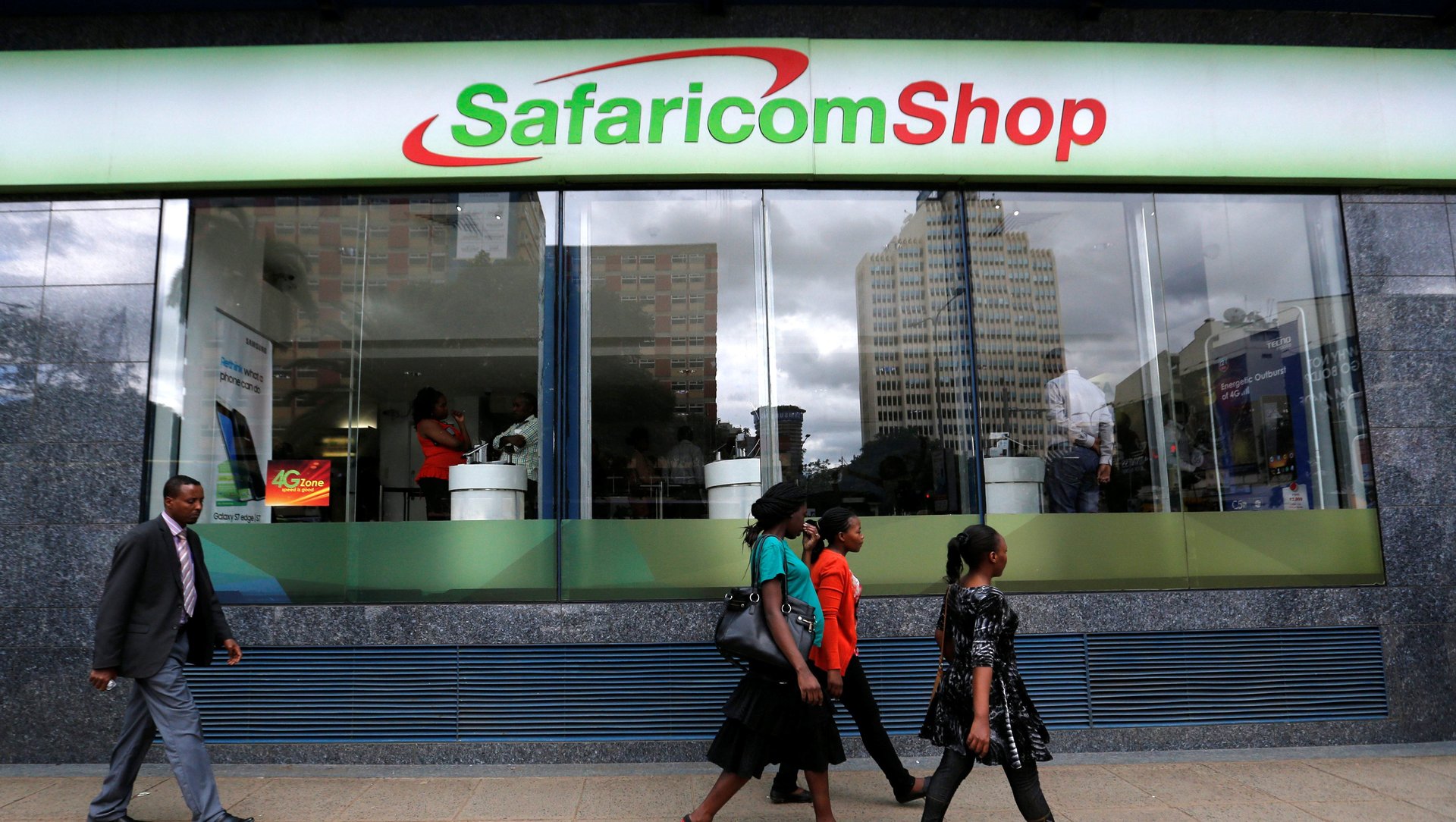Kenya won’t force a spin-off of the world’s leading mobile money service after all
Almost exactly a year ago, a report from an independent consultant to Kenya’s telecoms regulator, sparked uproar and panic. It recommended the government look into breaking up the dominant mobile operator Safaricom by spinning off the even more dominant mobile money service, M-Pesa.


Almost exactly a year ago, a report from an independent consultant to Kenya’s telecoms regulator, sparked uproar and panic. It recommended the government look into breaking up the dominant mobile operator Safaricom by spinning off the even more dominant mobile money service, M-Pesa.
Now, the global consulting firm that made that controversial recommendation seems to have changed its mind and it’s not entirely clear why.
The UK-based Analysys Mason (AM) was contracted in 2016 by the Kenyan regulator, Communications Authority of Kenya (CA), to analyze the competitive nature of the local telecommunications market. After collecting data, conducting a technical assessment, reviewing legislation, and meeting industry stakeholders, the firm recommended in leaked findings last year that the dominant operator’s voice and data services be split from its mobile money platform M-Pesa. To ensure fairness, AM also recommended the implementation of mobile money interoperability across networks by the end of 2017.
In its latest report, AM said those measures were “disproportionate” and “constrain” the CA’s discretion to act as they deem fit. The “final report is therefore silent on what further remedies the CA might consider.”
In an email response to Quartz, Philip Bates, a principal consultant with AM, said their original “proposed functional separation as a potential remedy” for market competitiveness “was under very specific circumstances where the implementation of wallet-to-wallet interoperability was delayed by factors under Safaricom’s control.”
This change of direction underlies the controversy surrounding Safaricom’s market share, and the smaller operators’ insistence that its dominance is essentially anti-competitive. It also part of a broader public debate that revolves around whether Safaricom needs extra regulation, and if its deep-entrenchment in Kenya’s economy could have far-reaching consequences in the event of a system-wide collapse or compromise. For the regulators, the vexing concern has been about creating a market that would attract sustainable investment, facilitate the growth of smaller operators, and ultimately give consumers more choice through competitive and high-quality services.
Yet, ever since the report was leaked, Safaricom has insisted they were being punished for their success. Its chief executive officer Bob Collymore has said it was a “malicious act to leak such a damaging report without first consulting or at least sharing it with us.”
As Kenya’s biggest firm by market capitalization, Safaricom dwarfs other operators in subscribers, revenue, and infrastructure. With a majority ownership by the UK’s Vodafone Group and Kenya’s government, it has a 72% mobile market share, which is almost five times the customers of its closest competitor, the local subsidiary of India’s Bharti Airtel.
This dominance has seen officials in government call for the separation of its businesses, which could potentially weaken its position in the market. And given the billions of dollars that run through M-Pesa annually, Kenyan treasury officials have also expressed their concern about the platform, noting that it could be a “plausible fiscal risk.”
Despite AM’s tight-lipped response, the firm suggested that surcharges on cross-network mobile money transfers be removed. It also noted that telecom regulators should set up a system with the guidance of the Central Bank from which agents can operate on multiple mobile money platforms under a single float. If this becomes a reality, it could make it easier for non-Safaricom users to send money across networks. AM also suggested reducing the number of counties Safaricom could share its infrastructure in rural areas with other operators from 14 to seven counties.
On its end, Safaricom has also been softening its position, allowing its agents to host other services beyond M-Pesa, and rooting for an agreement to allow cross-network mobile transfer systems. Safaricom and Airtel are also reportedly testing inter-operability of mobile cash transfer. And given that M-Pesa is already being used in almost a dozen countries in Africa, Asia, and Europe, a full-on cross-company interoperability in Kenya could help further the platform’s pan-African and global success.